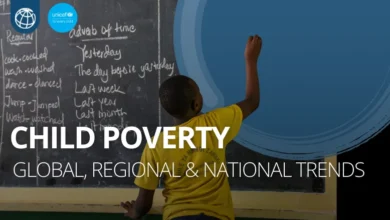World Mental Health Day: Harnessing the Power of Play to Support Children’s Mental Health

Every year, on October 10, the world unites to observe World Mental Health Day, a global initiative designed to raise awareness about mental health issues and encourage collective action. With millions affected by mental health conditions, this day offers a critical opportunity to shed light on mental health concerns, address the stigma, and advocate for the accessibility of mental health care for all. One powerful yet often overlooked tool that can nurture and protect children’s mental health is play.
The Significance of World Mental Health Day
Mental health affects everyone. Globally, one in eight people lives with a mental health condition, according to the World Health Organization (WHO). For children and adolescents, the statistics are particularly alarming. Around one in seven children aged 10 to 19 experiences some form of mental health disorder, such as anxiety, depression, or behavioral problems. The barriers to care, including stigma, lack of resources, and affordability, prevent many from accessing the help they desperately need. World Mental Health Day offers a chance to break down these barriers by opening dialogues about mental health, advocating for systemic changes, and creating pathways for more accessible, affordable care.
Mental health should be a universal priority. While the global effort focuses on all age groups, it’s crucial to spotlight how early intervention in childhood—through creative approaches like play, can shape lifelong well-being.
Play as a Tool for Mental Health
While the concept of play is often associated with leisure and fun, it is far more profound in its impact on a child’s mental and emotional development. Play is not just a pastime; it is essential for a child’s cognitive, emotional, and social well-being. Studies show that children who engage in adventurous or imaginative play exhibit fewer symptoms of anxiety and depression. Play offers children the chance to build resilience, develop coping strategies, and foster positive emotions, which are critical tools for safeguarding their mental health.
How Play Builds Resilience and Confidence
When children engage in free or structured play, they learn to navigate challenges, solve problems, and regulate their emotions. For instance, games that involve role-playing allow children to step into different scenarios, helping them explore feelings of frustration, excitement, or empathy. Through play, they practice setting rules, negotiating outcomes, and even handling failure—all within a safe environment. These experiences build their emotional toolkit, making them more adaptable and resilient when faced with real-life difficulties.
A study that followed children who learned to play well with peers by the age of three found that they had better mental health later in childhood. Another study highlighted that children who regularly engage in adventurous play—such as climbing trees or exploring new environments—tend to show fewer signs of anxiety. Play gives children the chance to experience both victory and loss, building confidence in their abilities and nurturing a sense of autonomy.
Play as a Safe Space for Emotional Expression
Through play, children often express emotions they might find difficult to articulate in words. It allows them to experiment with feelings in a non-threatening way, giving them control over scenarios where they can process stress, fear, or anger. In group settings, play fosters social skills such as cooperation, communication, and empathy, which are essential for emotional intelligence and healthy relationships. Children who feel confident expressing their emotions and understand how to handle conflict are better equipped to protect their mental health as they grow.
Why Play Matters Now More Than Ever
The world can be a tough and overwhelming place for children, especially in the face of increasing societal pressures, global challenges, and uncertainty. As children experience heightened stressors from their environments—whether due to academic pressures, social media influence, or family challenges—the power of play becomes an even more crucial mechanism for mental health support.
Children living in conflict zones, facing poverty, or coping with trauma especially benefit from play. In these difficult circumstances, play offers a sanctuary—a moment of joy and freedom amid chaos. Whether through drawing, storytelling, or physical activity, play enables children to reclaim a sense of control, helping them process their surroundings and maintain their mental well-being.
Mental Health Access for Children: Breaking Barriers
While play is a powerful tool, access to comprehensive mental health services is still vital. Despite the prevalence of mental health conditions, most young people cannot access the care they need. Many are held back by societal stigma, lack of mental health professionals, and the high cost of care. In low-resource settings, mental health care is often an afterthought, leaving millions of children and adolescents vulnerable.
This is where the advocacy of World Mental Health Day comes in—mobilizing governments, organizations, and communities to push for policy changes, invest in mental health services, and reduce the stigma around mental health conversations. Initiatives focusing on expanding mental health services in schools, communities, and health centers can make a significant difference in early intervention and prevention.
Play is a Right, Not a Luxury
It’s important to note that play should not be a privilege reserved for certain children; it is a fundamental right recognized by the UN Convention on the Rights of the Child. Every child, regardless of their socioeconomic background or geographical location, deserves the opportunity to play and experience its mental health benefits.
On this World Mental Health Day, let us remember the simple yet transformative power of play. By creating environments that encourage play, both at home and in schools, we are actively supporting children’s mental health and laying the foundation for a healthier, more resilient generation.
Conclusion: A Call to Action
As we mark World Mental Health Day, it is a call to action for everyone—parents, teachers, policymakers, and communities—to prioritize children’s mental health. Conversations must shift from treating mental health conditions to nurturing environments where children can develop the emotional and social skills necessary to thrive. Play is not just a source of joy—it is a powerful tool for mental health. It is time we recognize its value and ensure that every child, no matter where they live, has the opportunity to harness its full potential.
We hereby extend a personal invitation to you for the 6th Edition of the Women Working with Children Conference, scheduled to take place virtually on October 25th and 26th, 2024 where we will be discussing the theme “S.A.F.E for Children®️ According to Play and Recreation: Empowering Women’s Leadership to Foster Resilient Children Through Play and Recreation,





